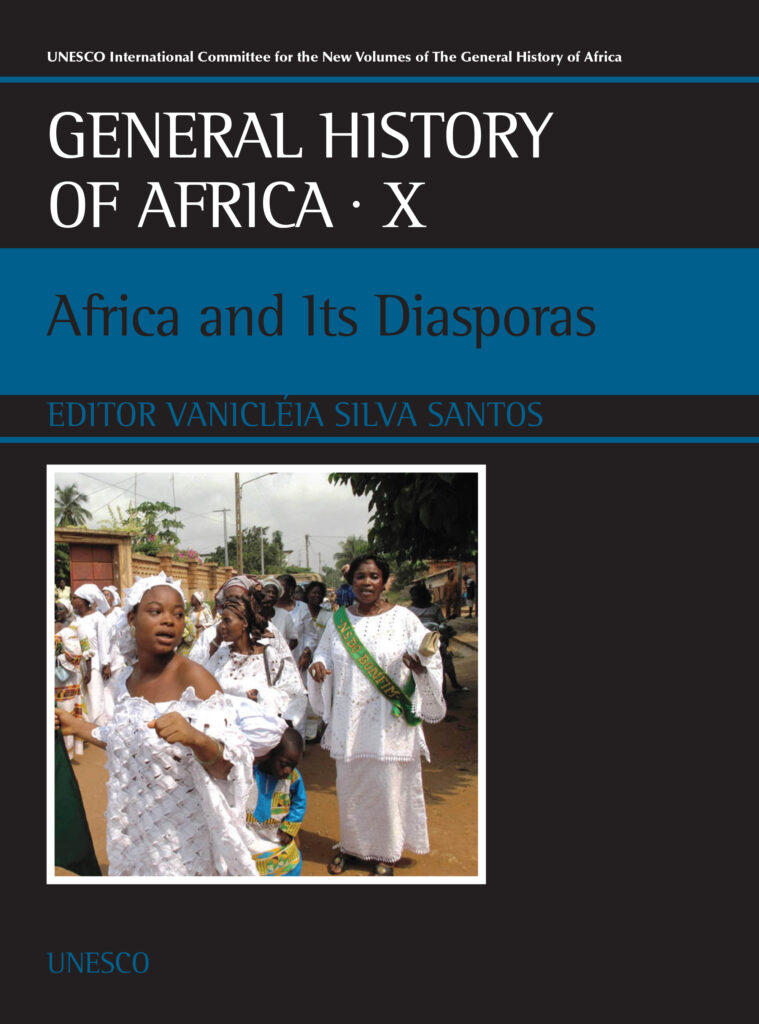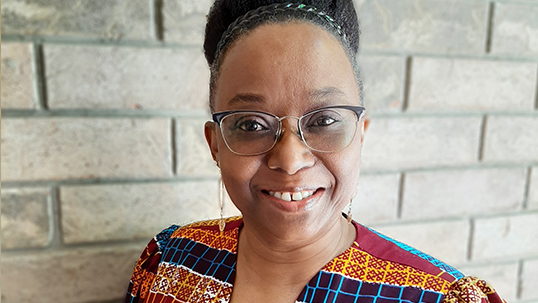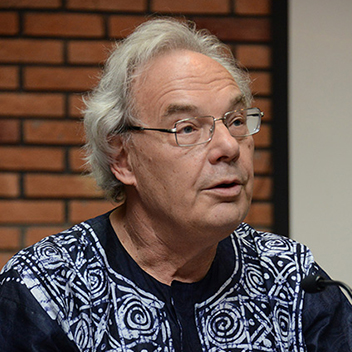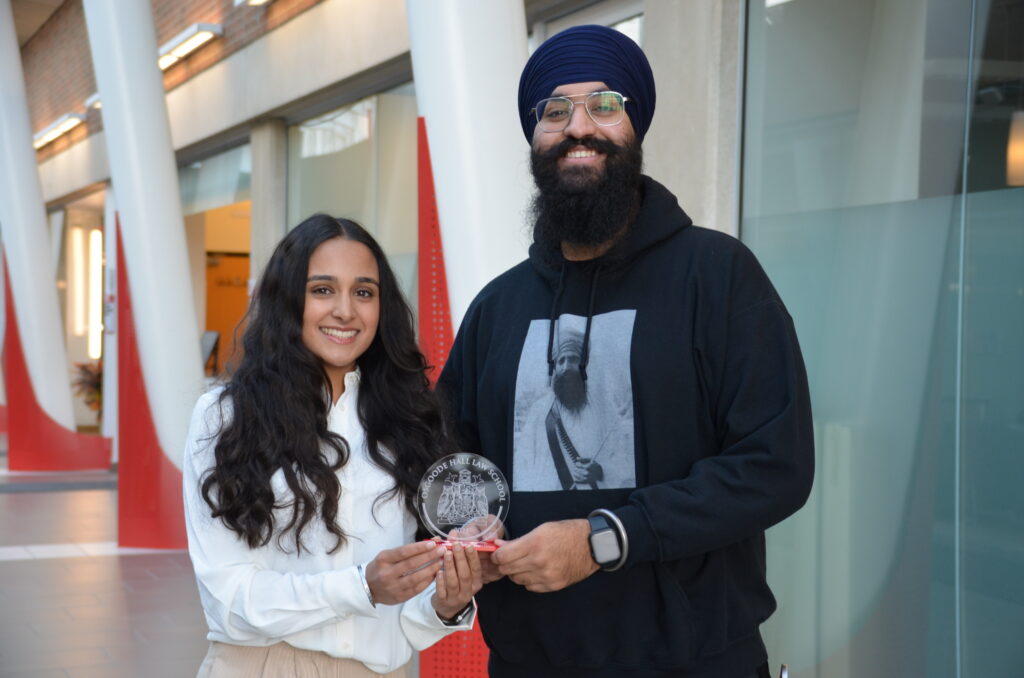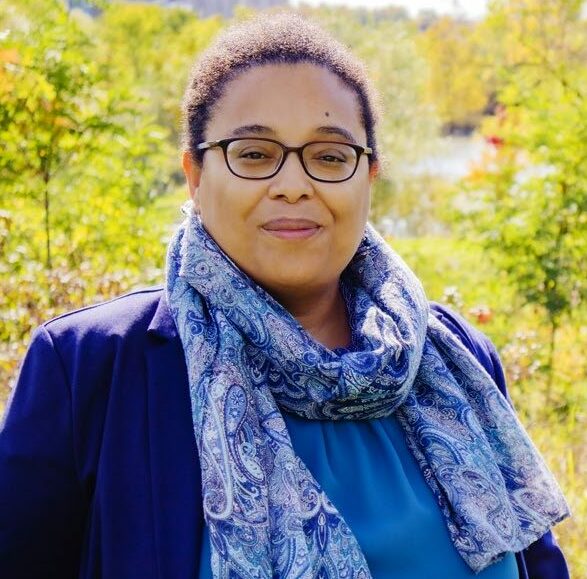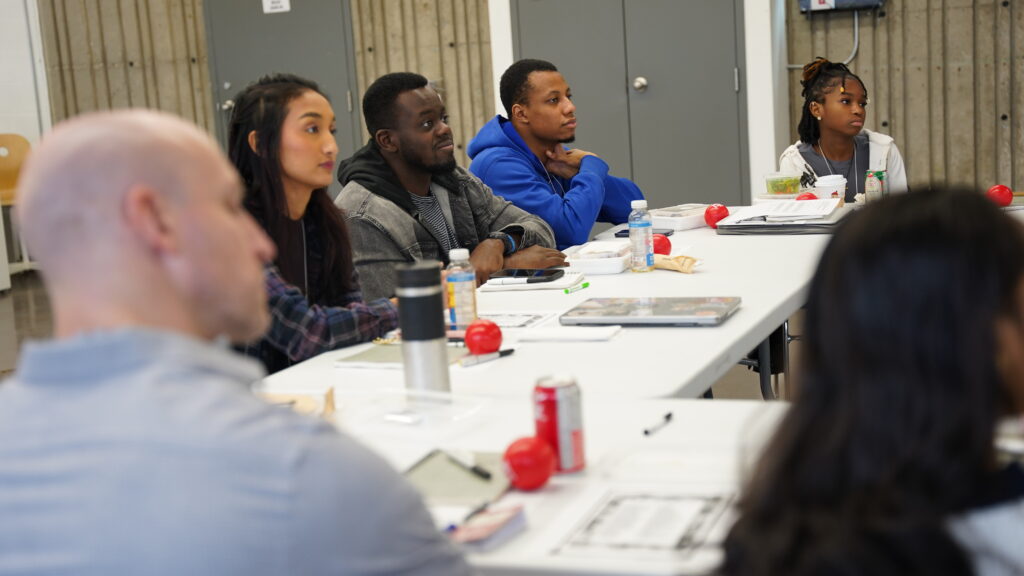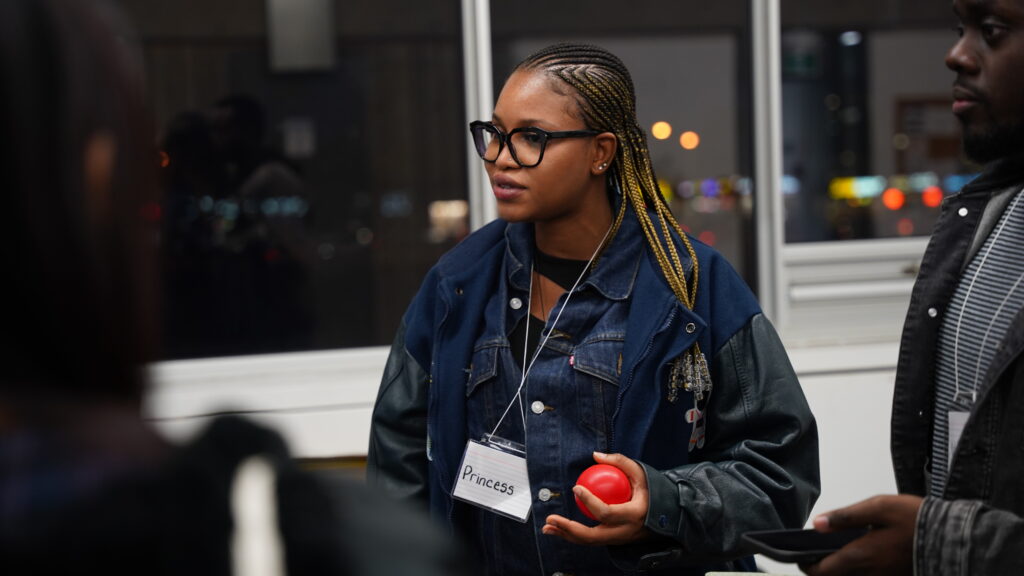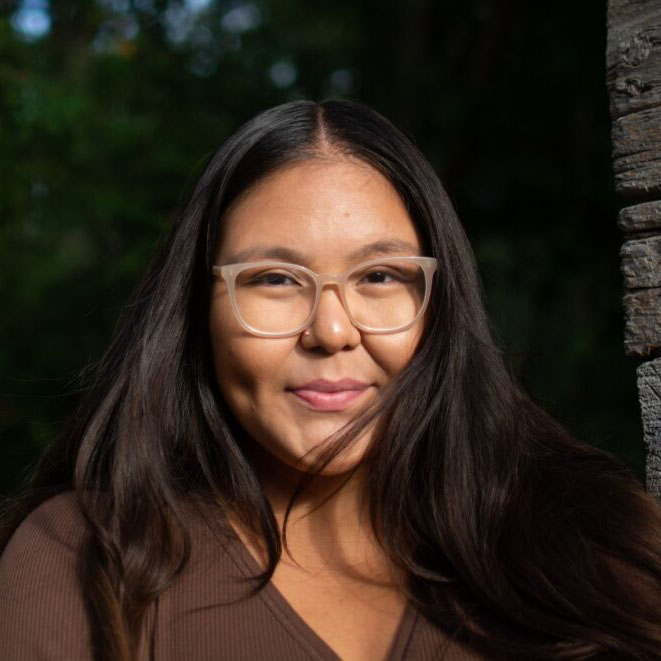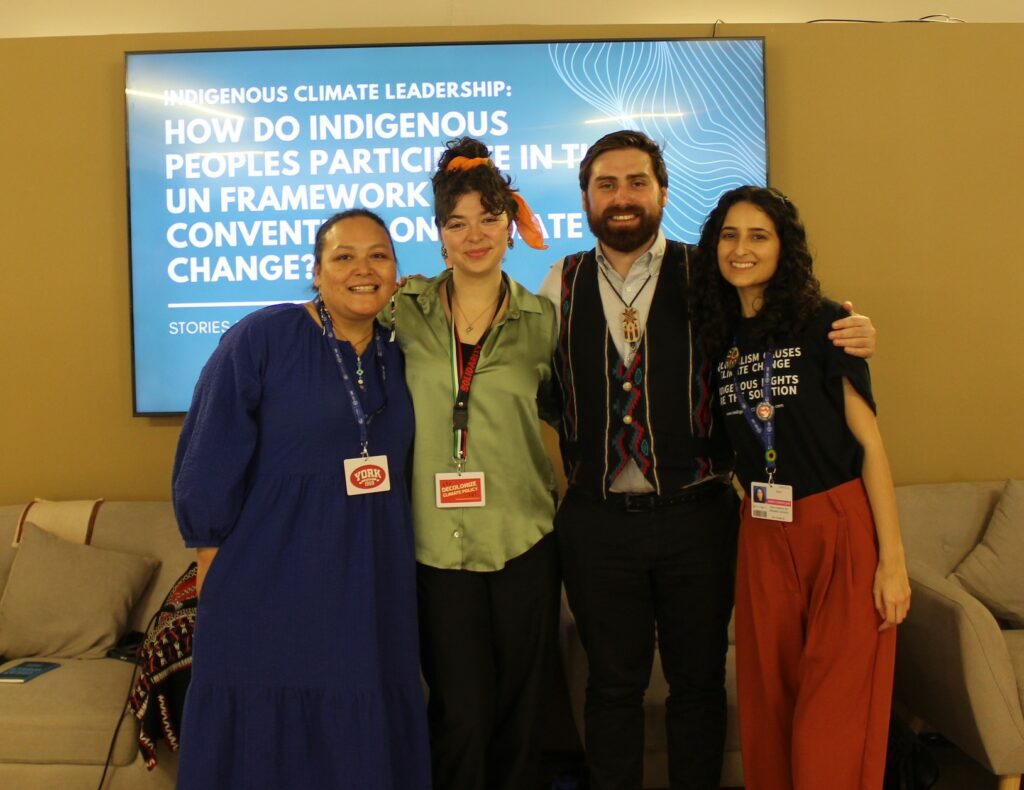Studies have shown that Black students are significantly under-represented on Canadian post-secondary campuses, due in large part to systemic barriers. The Jean Augustine Chair in Education, Community & Diaspora, now fully endowed and housed within York University’s Faculty of Education, aims to address this disparity and others by advancing access, equity, and inclusivity to education through community engagement and collaborative action.

Distinguished Research Professor Carl James, who has held the position of Jean Augustine Chair in Education, Community & Diaspora since 2016, met with YFile to discuss the Chair, his role within it and what the recent $1.5 million in federal funding means for its future.
Q: For those who are unfamiliar, can you describe the mandate of the Jean Augustine Chair in Education, Community & Diaspora?
A: We work with community to enable and support students from racialized and marginalized groups through education; not only through elementary, middle and high school, but through university and college as well.
Q: What is your focus in your role as Chair?
A: I’m very interested in programming because it is a useful reference for knowing about the experiences and concerns of Black community members and students. In this way, we get to know about the research questions we might want to explore. There’s a tendency to separate research from program, but I think Jean Augustine expects the Chair to combine research with programs. It is simply not research for research’s sake. Instead, once you do the research, we should act on it.
I particularly like the participatory action research we do, where we set up a program and then, as the program proceeds, we research the program – is it working, is it not working, and why? And as we conduct the research, we might put into place some adjustments to the program if it’s not heading towards the expected outcome. Hence, when we’re promoting the idea that a particular program works, we will be able to say the program works because we have done the necessary research and have some documented evidence. We use the participants as researchers, as well, collaborating with them about the information we’re trying to gather.
Q: Can you explain what it means that the Chair is now fully funded?
A: The federal government’s recent $1.5-million contribution towards the endowment means that the Chair is well positioned to continue with its activities. It also means that we now have endowment funds to create some of the programs we’ve been wanting to.
Q: What is the Day at York program?
A: The Day at York program, which has hosted over 450 students from Ontario (and some from Halifax, Nova Scotia) in the past year and a half, provides Black students enrolled in Grades 7 to 12 with an opportunity to imagine themselves at a post-secondary institution.
We can tell students to go to university, but it’s difficult to imagine if you don’t have something to stimulate or inform that imagination. This program helps insofar as students are able to attend lectures, workshops, campus tours, and networking sessions with students, alumni and Black faculty members.
When students think of, where should I go to university, sometimes familiarity with an institution might help them to choose a particular university or program. It provides many opportunities that students would not have otherwise had.
Q: What are your proudest accomplishments in this role so far?
A: One of the things I’m particularly pleased with is the Jean Augustine Chair (JAC) Student Network, which involves Black undergraduate and graduate students and recent graduates. The group contributes to the work of the Chair by sharing their experiences navigating university and working to be successful in their respective educational programs. Members act as hosts and mentors to high-school students who come on campus; and they do not only help to inform and contribute to the Chair’s research agenda, they also participate in the research as respondents, research assistants and collaborators. Ultimately, the network provides members with opportunities for personal, educational, team building and work-related skill development in an affirming and supportive post-secondary educational environment.
Also, we have the Jean Augustine Chair’s annual Black History Month event that happens every year in partnership with the School of the Arts, Media, Performance & Design’s music program. Called Word, Sound, Power: An Annual Celebration of Black Artistic Expression, it is a showcase of talent, creativity and cultural pride. It is taking place this year on Feb. 7. It is held in recognition of one of Jean Augustine’s legacies – that is, the crucial role she played in establishing Black History Month in Canada. Therefore, it seems logical to hold an event at York through the Chair.
Q: What are some other projects you’re working on as part of the Chair?
A: We’re currently conducting research on social capital, a significantly new area to explore. We’re looking at how individuals employ their social capital – that is, their cultural assets, interests, aspirations, education and consciousness of what is possible – to take advantage of opportunities by which they might access training and employment to realize their social, economic, career and other ambitions. In partnership with the Coalition of Innovation Leaders Against Racism and York University’s School of Continuing Studies, we will investigate the lived experiences and needs of racialized Canadians, using the three years of the project to collect data that will help to inform educational and employment program initiatives.
As well, we recently received program funding from the RBC Foundation to put in place Securing Black Futures, a national partnership by which we might collectively work to build pathways for Black youth to pursue their educational goals and attain academic and career success. Led by us at York and working in partnership with colleagues from six universities across the country, the program activities will serve to inform us about relevant and appropriate educational and social interventions and supports for Black youth. We will also get to know how we might best mentor, enable, support and educate Black students in their pursuit of post-secondary education, as well as particular educational and career pathways – particularly STEM (science, technology, engineering and mathematics).
Q: Looking toward the future, how do you hope the now fully endowed Jean Augustine Chair will impact the lives of Black and marginalized youth in Canada?
A: I think that a fully endowed Chair is nicely positioned to continue with its current local, regional and national initiatives. These include: supporting students in constructing their aspirations, in their decision processes as they journey towards their future selves; facilitating the voices of Black Canadians as they tell of their experiences through the research we will conduct, report and publish; helping to build university-community partnerships through which we might help to address structural and institutional barriers to full inclusion and equity of Black and other racialized people within Canadian society; and making substantial research contributions about Black life in Canada, taking into account education, employment, health and housing needs.
Q: How important is the York University community to the success of the Chair?
A: We cannot underestimate the support that York University has given the Chair, both financial and otherwise. Neither can we underestimate the contributions of the Faculty of Education, faculty members from across the University, our community advisory committee, and our partners at York University centres such as the Harriet Tubman Institute and the Centre for Research on Latin America & the Caribbean. It’s this whole network of people that enables the work of the Chair.




